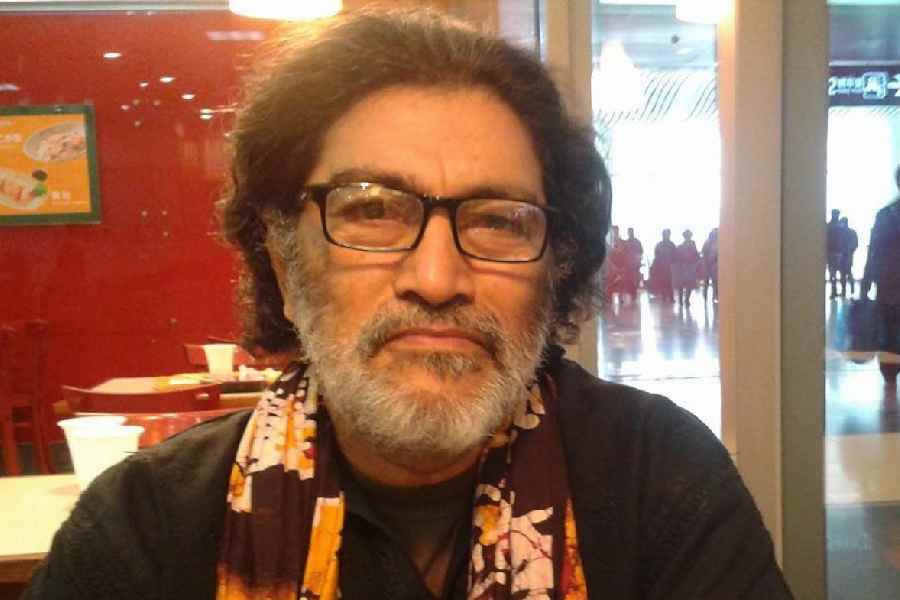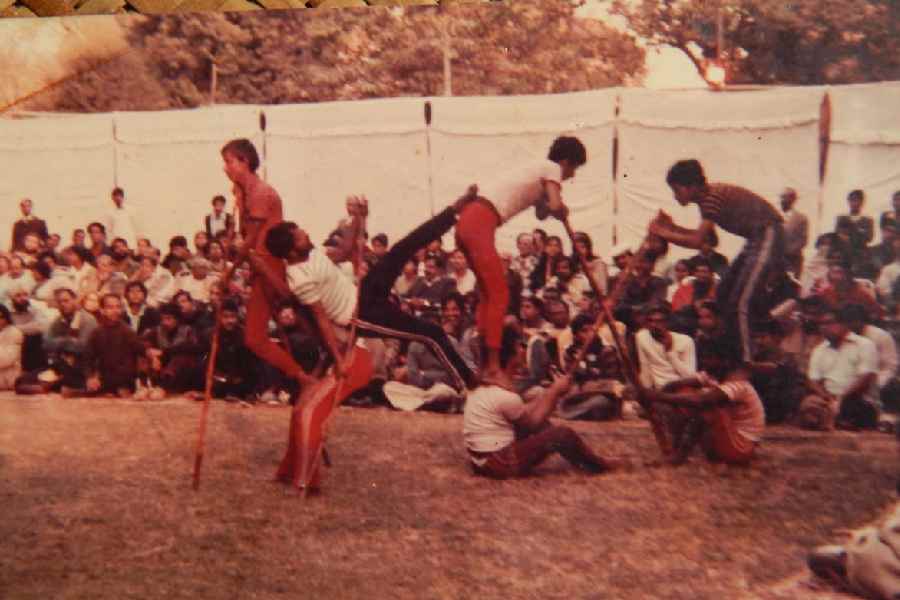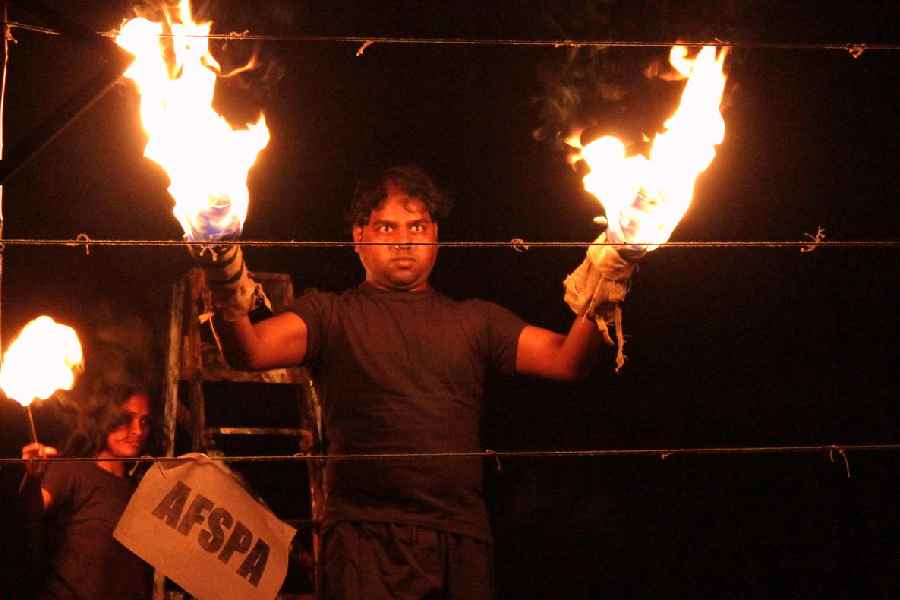On the street adjoining Calcutta’s Kidderpore Dock, a little girl in tattered clothes stood begging. Across the street was a well-dressed man smoking a cigarette. He walked over to the girl and started talking to her. Two people spotted the man and raised the alarm. Soon more people gathered around. After all, three little girls had gone missing from the locality recently; trafficked most likely, but the local administration was quiet. Suddenly the crowd turned on the man. The police came and started to take him away. And that is when Probir Guha stopped the police vehicle.
Guha informed the cops that this was a street play he had staged without any formal announcement. The veteran theatre activist says, “My intention was to highlight human trafficking in the area.”

Theatre activist Probir Guha
The 77-year-old calls his kind of theatre sahajiya theatre. Sahajiya is the Bengali word for an easy way of doing a certain thing. For Guha, it is an alternative way of doing theatre. “It can either be a performance that involves a stage or proscenium, formal scripts, actors who know their dialogues and what they are playing. Or it can be an impromptu act wherein no one knows how things will turn out,” he says. “This allows me to convey the message that I want to send out,” he adds.
The messages vary. Some plays are about women, some about being a Muslim in today’s India, some about Naxals and what they are versus what they are made out to be. In his attempt to convey his thoughts, Guha has experimented with the genres and created subgenres.
For a while, Guha had joined the undivided Communist Party, then went with CPI(M) and later supported the CPI(ML). He soon realised that politics was not the platform that suited him. He turned to theatre in the early 1970s. He worked with theatre director and activist Bibhas Chakraborty and thereafter theatre legend Badal Sircar. Eventually, he started out on his own.
He began staging plays in a school in Khardah in North 24-Parganas. This was 1977. Guha says, “My theatre is democratic. We generally write the script together. There is a discussion amongst the actors, director, musicians, sound and light managers, backstage people, front stage person and then we come up with a play.”
Sometimes he needs to improvise on the format, like the time he wanted to tell the story of a woman from a well-to-do family who was a victim of domestic abuse. The woman did not want to come on stage fearing repercussions so Guha devised a way. “I told my audience that this was supposed to be a theatre of feeling and everyone had to hear the play and not see it. So everyone in the audience was blindfolded when the woman took to the stage.”

Ahalya directed by theatre activist Probir Guha
Guha says his sahajiya theatre is inspired by the ideology of the 15th-century saint Chaitanya Mahaprabhu. He says, “Chaitanya had to come out on the street to protest against oppression, and caste and creed discrimination. He was the first to show how a non-violent protest can pull down socio-political hegemony. Gandhiji too might have been inspired by him.”
Indeed Guha’s plays are a protest against the ways of the world. Take for instance Victimised, staged in Lahore’s Al-Hamra open-air theatre in 2006 and later in Chandigarh and Delhi too. It was a play about the persecution of Muslims. He says, “When it was staged at the National School of Drama, Delhi, during the Bharat Rang Mahotsav, 2008, people abused me for siding with Muslims. I said nothing. Soon some people in the crowd protested and a dialogue started between the two groups.”
Then again when he worked among the labourers in the stone quarries in Chhatisgarh’s Champa district, he saw for himself how they were being shortchanged. They were not being paid the government rate. But when he tried to speak to them, they chased him away. They were afraid that the administration would stop giving them their wages altogether. So he devised a play. He says, “Instead of talking about their rights and payments, I asked them ‘what if’. What if they got a few rupees more? Then I gathered their responses and added those to the play and staged it. After the third improvisation, the labourers gathered the courage to ask for their rightful wages and they got it too.” Another time he wrote a play on the request of J.P. Jaiswal, the founder of Free Legal Aid Committee, Jamshedpur, to help a rape victim fight her case in court and win.
Guha’s theatre always has an end in sight beyond the artistic. When it is not raising red flags, it tries to bridge gaps. In the early 1990s, he decided to create a women’s theatre group. He selected women from Dalit (Dom) families of Khairachatar in Bokaro and some Rajbanshi women from Palashbari in Jalpaiguri. “The Rajbanshis are a tribal community. They did not want their women to do theatre. The Doms were rather a liberated set, their women could speak their minds,” says Guha. But his purpose was not only to stage a play. “I had to deliver the message,” he adds. So he told the Rajbanshis that the women would not ever perform on stage, but they could rehearse in the evenings if they liked. The men agreed. Says Guha, “The women would gather under a tree at the chowk and discuss their problems. A conversation had started.”
Guha calls his kind of plays living theatre. He says, “What I couldn’t say or do in my political career, I do on stage.”











